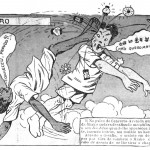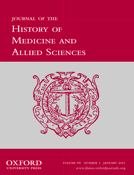Paulo Henrique de Almeida Rodrigues examines the complex and fascinating process of emergence of the Unified Health System (SUS) in Brazil in the late 80s.
According to his article “Political challenges facing the consolidation of the Sistema Único de Saúde: an Historical approach”, the introduction of SUS, enacted by the 1988 Constitution, transformed health into an individual right and deeply changed the organization of public health in Brazil.
The context
In the late 80s, Brazil was struggling to consolidate democracy, after 21 years of a military regime (1964-1985). In the 1988 Constitution, which institutionalized the democratic opening, health began to be understood as a social right, addressed in public policies.
The establishment of the new model for public health was adopted under unfavorable international conditions. In late 80s, Neoliberalism was a dominant political ideology in central countries and its institutions, such as the IMF and the World Bank.
In Brazil, the neoliberal agenda was also in place, but the sanitation reform, which established the basis for SUS, was gaining relevance. The movement emerged in the 70s as a form of opposition against the military regime and privatization. And the 8th National Health Conference, influenced by these ideas in 1986, consolidated the concept of health as a universal right and a duty of the State.
Social and political features of the new health model
 One unexpected social dimension of the adoption of SUS was its insufficient support amongst workers and labor unions. This happened in part due to political measures taken by the military regime, favoring private health plans that attracted workers and unions.
One unexpected social dimension of the adoption of SUS was its insufficient support amongst workers and labor unions. This happened in part due to political measures taken by the military regime, favoring private health plans that attracted workers and unions.
When discussing the new model proposed by SUS, we cannot ignore the Brazilian private health sector, which has largely grown under military rule. This reality has made it a powerful rival for the public health system. Insurance companies account for a significant share of the market and having one of these insurances is a priority for many workers. This fact also reveals how poorly the public health system is seen by the population.
Another key feature of the new health model is its decentralization, with municipalities in charged of medical assistance. The idea of decentralizing to municipal level is based on the initial belief that this would encourage greater participation of society in health policies. The analisis of the origins of this major public health reform in Brazil is crucial to understand its development and present challenges.
See full article (http://www.scielo.br/scielo.php?script=sci_arttext&pid=S0104-59702014000100037&lng=pt&nrm=iso&tlng=en)
See other related article about this topic (Paiva, Carlos Henrique Assunção; Texeira, Luiz Antonio, “Health reform and the creation of the Sistema Único de Saúde: notes on contexts and authors”.
See the jan-mar edition of História, Ciências e Saúde – Manguinhos with articles in Portuguese about SUS.











